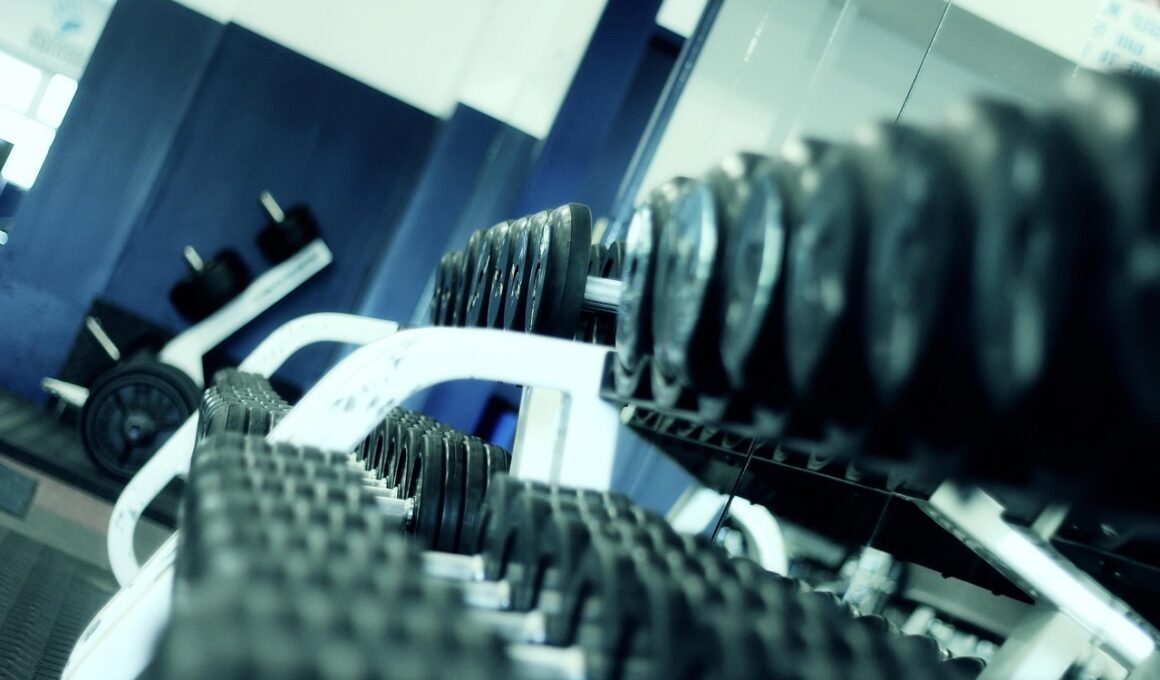Understanding Caloric Needs for Different Sports
In the realm of health and wellness, understanding caloric needs is crucial for athletes engaging in various sports. Each sport requires unique energy expenditures, influenced by the intensity and duration of activity. For instance, a marathon runner’s caloric needs significantly differ from those of a gymnast. To meet these needs healthily, athletes should base their diets on the intensity of their training sessions. Consuming a balanced diet rich in macronutrients will help optimize performance. Regularly monitoring weight and energy levels will further assist athletes in adjusting caloric intake. Macronutrients, including proteins, fats, and carbohydrates, all play vital roles in energy provision. Proteins support muscle repair, while carbohydrates provide immediate energy. Fats, on the other hand, deliver sustained energy, especially during longer activities. Athletes must understand their unique requirements to enhance performance. Variation in daily caloric intake may be necessary depending on training phases and competition events. Furthermore, hydration levels should be maintained to support training demands and recovery. A tailored nutritional strategy can lead to significant improvements in an athlete’s performance and overall health.
Caloric Needs of Endurance Athletes
Endurance sports, such as marathon running and cycling, demand higher caloric intakes due to prolonged energy expenditure. These athletes often require between 3,000 to 5,000 calories daily. Understanding specific caloric needs for endurance training is vital for maintaining adequate performance levels. The energy demands depend on factors like body weight, training intensity, and duration. For instance, a 70 kg cyclist might burn about 600 calories per hour on a challenging ride. To fuel these activities, incorporating nutrient-dense foods is essential. Foods like whole grains, lean proteins, fruits, and vegetables should primarily comprise their meals. Additionally, considering energy gels and electrolyte drinks during training enhances performance by preventing fatigue. Many endurance athletes also prioritize post-workout nutrition to promote recovery. Consuming carbohydrates and protein after training aids in replenishing glycogen stores and muscle repair. Hydration plays a critical role, too, as dehydration can significantly affect performance. Monitoring fluid intake before, during, and after training ensures athletes maintain optimal hydration. Overall, proper caloric management is vital for endurance athletes to maximize performance and energy.
On the contrary, sports such as weightlifting have differing caloric demands. Weightlifters mostly focus on building muscle mass and strength, resulting in different energy needs. Typically, these athletes require fewer calories than endurance athletes, roughly around 2,500 to 4,000 calories daily. However, the quality of the calories consumed is crucial. Emphasizing protein intake not only aids muscle recovery but also promotes growth and strength. Athletes should incorporate diverse protein sources, such as chicken, fish, eggs, and plant-based options like beans and lentils. Tailoring nutrient timing is relevant for weightlifters during and after workouts. Pre-workout meals could consist of complex carbs for energy, while post-workout should focus on protein intake for muscle recovery. Maintaining an adequately dense diet helps support the intense training sessions without excess fat gain. Additionally, hydration must also be prioritized, as it significantly impacts performance during intensive weight sessions. Balancing macronutrients accordingly is key. Ultimately, understanding caloric needs based on activity type assists athletes in achieving their specific desired goals.
Caloric Needs in Team Sports
Team sports like basketball and soccer require a unique balance of caloric needs, as these activities combine endurance and strength. Players typically need 3,000 to 6,000 calories per day, depending on their position and playing style. Nutritional strategies become essential for satisfying these energy demands while maximizing performance. Carbohydrates provide the quick energy necessary for short bursts of intense activity. Teams should focus on consuming a variety of carbs, including fruits, whole grains, and starchy vegetables. Protein also plays a significant role, particularly for athletes involved in high-impact positions. This strengthens muscles and aids in recovery following matches. Additionally, healthy fats are vital for overall energy and cellular function. Proper hydration strategies must accompany calorie intake, as dehydration can hinder athletic performance. Regular assessments of weight, energy levels, and nutritional intake ensure every athlete meets their individual needs. Pre- and post-game meal planning must be meticulously structured to facilitate optimal performance. Involvement from a sports nutritionist may ensure each athlete adheres to the best dietary practices for their sport and playing style.
Cross-training athletes embody the diverse caloric needs of various sports. Engaging in multiple sports often results in distinct training demands, resulting in fluctuating energy needs. Recognizing these varied caloric requirements ensures the athlete can maintain high performance across disciplines. Depending on the sports combined, caloric needs may range widely from 2,500 to over 6,000 calories daily. To effectively fuel themselves, athletes must track training intensities and time commitments devoted to each sport. Moreover, diversifying the food choices can help meet specific macronutrient requirements to support varied training stresses. Some athletes utilize a blended nutritional approach, encompassing aspects from endurance sports and strength training. This requires a bigger focus on meal planning to ensure an efficient supply of energy. Mealtimes and types of food should vary to prevent monotony, keeping the athlete invested in their regimen. Furthermore, proper hydration management remains essential. Monitoring fluid intake must align with each sport’s demands. Properly adjusting caloric intake can distinguish between peak performance and fatigue and injury, a common risk in multi-sport athletes.
Importance of Individualized Nutrition Plans
Creating individualized nutrition plans for athletes based on specific energy needs is crucial for maximizing performance. One-size-fits-all approaches often fail to accommodate diverse body compositions, training regimens, and metabolic rates. Assessing each athlete’s unique factors allows nutritionists to tailor caloric intake accordingly. Achieving balance in macronutrient distribution must accompany individualized plans, as athletes require different proportions of carbohydrates, proteins, and fats depending on their sport. Regular consultations with a nutritionist ensure adherence to these plans, and adjustments are made reflecting changing training schedules and competition timelines. Nutritional education becomes vital, empowering athletes to make informed choices regarding their food selections. Furthermore, not every athlete needs to consume excess calories to optimize performance. Many perform best with caloric loads that support activities without fueling excess fat gain. Consequently, understanding the impact of food choices becomes fundamental to athletes aiming for success. The incorporation of whole foods and nutrient-dense options facilitates health availability and readiness. Continuous assessment and adaptation of these personalized plans become essential for long-term progress and achievement.
Ultimately, understanding caloric needs in sports nutrition plays a critical role in athlete performance and well-being. Adequate energy provision allows athletes to train effectively, recover properly, and sustain optimal performance levels. Each athlete must recognize their unique requirements based on sport type, activity levels, and personal goals. By fostering awareness surrounding caloric content and timing, athletes empower themselves to optimize their performance. They can eliminate the risk of burnout or injury associated with improper fueling. Consultative support from experts enables athletes to navigate the complexities of nutrition, ensuring tailored approaches to their individual needs. Staying informed about energy availability helps shape dietary strategies effectively. Furthermore, teams that implement cohesive dietary practices gain a competitive edge among peers. Through educational initiatives, athletes learn to appreciate and embrace the role of nutrition in their daily routines. By prioritizing nutrition, athletes enhance their physical progress and promote long-term health. This approach not only affects training but also influences life outside sports, as healthy habits evolve into lifestyle choices that serve them well into future endeavors.


